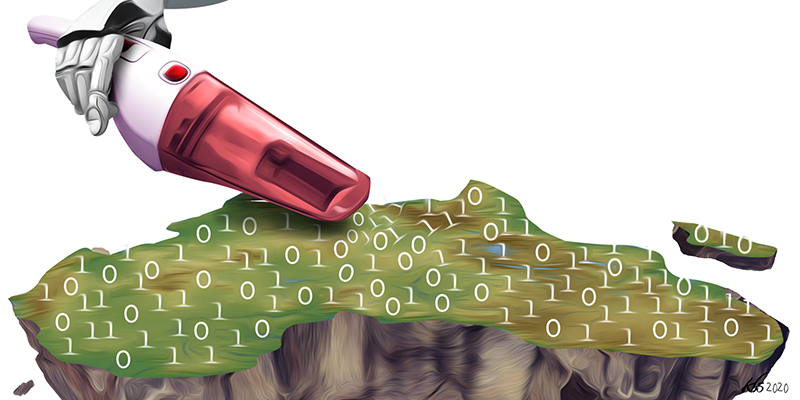by ABEBA BIRHANE

Colonialism in the age of Artificial Intelligence takes the form of “state-of-the-art algorithms” and “AI driven solutions” unsuited to African problems, and hinders the development of local products, leaving the continent dependent on Western software and infrastructure.
Traditional colonial power seeks unilateral power and domination over colonised people. It declares control of the social, economic, and political sphere by reordering and reinventing the social order in a manner that benefits it. In the age of algorithms, this control and domination occurs not through brute physical force but rather through invisible and nuanced mechanisms such as control of digital ecosystems and infrastructure.
Common to both traditional and algorithmic colonialism is the desire to dominate, monitor, and influence the social, political, and cultural discourse through the control of core communication and infrastructure mediums. While traditional colonialism is often spearheaded by political and government forces, digital colonialism is driven by corporate tech monopolies—both of which are in search of wealth accumulation.
The line between these forces is fuzzy as they intermesh and depend on one another. Political, economic, and ideological domination in the age of AI takes the form of “technological innovation”, “state-of-the-art algorithms”, and “AI solutions” to social problems. Algorithmic colonialism, driven by profit maximisation at any cost, assumes that the human soul, behaviour, and action is raw material free for the taking. Knowledge, authority, and power to sort, categorise, and order human activity rests with the technologist, for whom we are merely data-producing “human natural resources”, observes Shoshana Zuboff in her book, The Age of Surveillance Capitalism.
Zuboff remarks that “conquest patterns” unfold in three phases. First, the colonial power invents legal measures to provide justification for invasion. Then declarations of territorial claims are asserted. These declarations are then legitimised and institutionalised, as they serve as tools for conquering by imposing a new reality. These invaders do not seek permission as they build ecosystems of commerce, politics, and culture and declare legitimacy and inevitability. Conquests by declaration are invasive and sometimes serve as a subtle way to impose new facts on the social world and, for the declarers, they are a way to get others to agree with those facts.
Elephant for more
